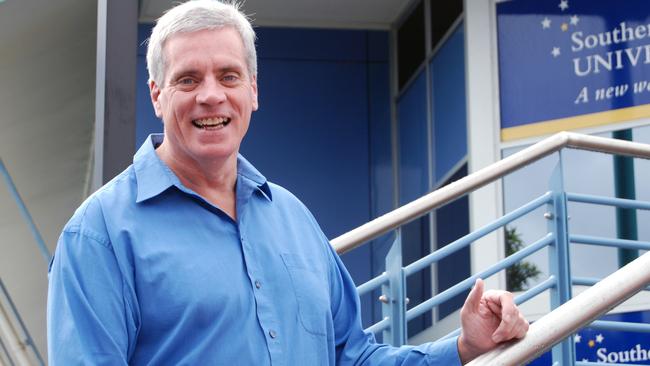Leading clinical psychologist sounds local sport concussion warning, calls for cultural reset
One of Australia’s leading clinical psychologists and brain injury researchers has revealed the concerning statistics behind concussion in local sport and has called on a change of culture to address the issue.
Local Sport
Don't miss out on the headlines from Local Sport. Followed categories will be added to My News.
One of Australia’s top senior clinical psychologists believes a change of mentality is needed to address the issue of concussion in community level sport.
Dr James Donnelly, a renowned American-Australian clinical psychologist with over 30 years of experience with concussion patients, has called for a cultural reset in local sport to prevent athletes playing through possible injuries.
Dr Donnelly, based in Sydney, has extensive training in psychotherapy, developmental disabilities, dementia and neuropsychology, and has devoted much of his career to investigating the impact of brain injury or concussion in children and adults.
He started his work with American footballers in the US and moved to Sydney in 2001, where he has seen thousands of athletes, including former West Adelaide, Sturt and Goodwood Saints player Blake Kennedy.

With an Australian Institute of Sport-proposed 21-day rest period for concussed community athletes set to be introduced across the country this year, Dr Donnelly revealed 50 per cent of his patients had suffered symptoms beyond 30 days.
“We know that most people seem to recover within the first three to four weeks, but some people – about 15-20 per cent – can continue to have concussion-related symptoms for 12 months after the injury,” Dr Donnelly said.
“Of the patients I’ve seen, who are usually those who have received medical checks and are experiencing symptoms after multiple weeks, at least 50 per cent have persistent after-effects of concussion for beyond 30 days.
“A greater time for a symptom-free return to activity would be helpful, but it can still be really individual.”

A number of major sporting bodies are set to implement the AIS-recommended protocols, but some sports, including football, are yet to agree.
Dr Donnelly stressed that leagues and clubs needed to be more cautious with community athletes, work to better identify symptoms of concussion and get participants the correct care if concussed.
“It’s difficult to know the true number of sports-related concussions, but research suggests there are about five concussions per team a season at every level of play in Australia,” he said.
“It looks like 15 to 19-year-olds are at the highest risk and only about 16 in every 1,000 people in that age range are being seen by medical professionals after head injury, so it’s about education, making volunteers and coaches aware of signs and symptoms at the community level and finding a way to record and monitor these injuries.
“A player does not necessarily need to be hit hard or be knocked out to be concussed either, only around 10 per cent of concussions result in a loss of consciousness.”
Dr Donnelly also believed a change to a culture of playing through injury was needed across all sports.
“You see this mentality in both senior and junior athletes – playing through a sore shoulder is one thing, but playing through a traumatic brain injury can have major consequences.
“We know that a lot of players want to keep playing because they love sport and are so attached to it, or because they earn money, but we need to pay attention to any changes in their performance or their personality and if in doubt, take them out.
“It’s also important we ensure athletes know their identity does not need to be tied to sport and that they can pursue other things in life.
“We find that when they understand that, they’re more open to sitting out for an extended period and reaching full recovery, which reduces long-term risks of depression, dementia or Parkinson’s disease.”
He also believed clubs may need to consider sitting players with repeated head knocks, even if they are not graded as concussions.
“Some blows don’t even get recorded, there are a lot of sub concussive blows which can have an impact. These blows can accumulate and actually get players pulled off the field in the NFL.
“Angus Brayshaw, who recently retired, he suffered multiple concussions but we’re not talking about all the other hits he took during games which could almost meet that criteria and still have a significant impact.”





